Updated: 12th November, 2023
These SEO tips for bloggers are a step-by-step bloggers’ SEO checklist that will show you how to do SEO for beginners to increase your website rankings.
As a marketer, you know the importance of search engine optimization (SEO). But if you’re like most people, you may not know how to do SEO yourself or understand the best way to improve search engine rankings.
There are many Google SEO guides out there that will make your head spin. But you don’t have to be a Google ranking expert to make your blog posts and website more search engine-friendly, especially if you use WordPress.
The primary benefit of the WordPress CMS is that it is built for SEO-friendliness. In 2022, WordPress is used by 43% of all websites, and 64.2% of those with an identifiable CMS.
In this SEO tutorial for beginners, we’ll share 21 bloggers’ SEO tips that will help improve your website’s ranking in search engines.
“SEO is a discipline where you accept Google as God. SEO experts are scientists trying to figure out how God decides who lives and who dies.” ~ Priya Florence Shah
If you’re an SEO beginner, you will find some of these SEO tips easy to follow, while others may require you to hire an SEO specialist.
By following these WordPress SEO tips for bloggers, you’ll be on your way to improving your blog’s visibility and Google ranking in the search engine results pages (SERPs).
Contents
- Learn How To Do SEO With These Bloggers’ SEO Tips
- #1. Buy a memorable domain name
- #2. Install a responsive WordPress theme
- #3. Optimize your permalinks
- #4. Improve your Page Load Time
- #5. Fix your Core Web Vitals score
- #6. Create a Google Sitemap
- #7. Add Schema markup to your blog
- #8. Modify your Robots.txt File
- #9. Focus on topical authority, not only keywords
- #10. Create helpful content based on search intent
- #11. Start link-building for SEO
- #12. Improve your internal linking
- #13. Update frequently and consistently
- #14. Refresh outdated content
- #15. Grow your social media community
- #16. Build a mailing list
- #17. Leverage Pinterest & YouTube
- #18. Build a powerful brand
- #19. Do regular SEO audits
- #20. Optimize for Voice Search
- #21. Stay put
- Blog writing tips & tools
Learn How To Do SEO With These Bloggers’ SEO Tips
Learn how to do SEO for beginners in this beginner’s guide to SEO. These 21 bloggers’ SEO tips for beginners will help you improve your website’s search engine rankings.
#1. Buy a memorable domain name
Choosing the right domain name is one of the most important SEO basics. Exact match keywords in the domain name used to be one of the most important ranking factors.
Before Google released an algorithm update that lowered the rank of low-quality exact match domains, you had to get a domain with the keyword “SEO” in it if you wanted your blog to get found for the keyword “SEO”.
As the Ignite Visibility blog says, while it’s still possible to rank with an exact match, it doesn’t increase your odds. The problem is that many exact-match domains are associated with spam, which can serve as a red flag for Google.
Getting a domain name with your own name might make sense for personal branding, especially if yours is a personal blog. Otherwise, you should get a memorable name or be creative and make up a word of your own.
The reason why I recommend the Namecheap Business Hub for domains and hosting is that they make registering, hosting, and managing domains easy and affordable. Plus I use them myself, and they have excellent customer support!
On Namecheap, you can get the best offers on domains, shared hosting, EasyWP-managed WordPress, SSL certificates, and VPN.
They provide everything you need to start creating an online presence for your business in one place.
#2. Install a responsive WordPress theme
Mobile digital media time is now significantly higher compared to the desktop. That means most of your blog visitors now read your blog on their mobile devices.
It’s important to ensure that your blog is easily accessible and readable on all mobile devices. The best way to do this is by using a responsive theme that adapts your blog design to the device it is being viewed on.
In the mobile-first era, when over 90% of all web traffic is mobile traffic and user experience is paramount, there’s really no excuse not to make this change.
You can use a fast-loading, responsive WordPress theme like Astra to make your blog accessible to users on all devices. It also has one of the best Core Web Vitals scores (you’ll learn why that’s important below).
The Jetpack plugin also gives you access to thousands of professionally designed, elegant, responsive WordPress themes that you can install right away.
#3. Optimize your permalinks
If your primary key phrase is “blog SEO,” make sure that the words “blog,” “SEO,” or both, appear in your blog headers (the H1 or H2 tags) as well as the title of each of your posts.
You can use Sitechecker’s H1 Checker online tool to check the presence of the H1 tag and also analyze and calculate its length.
Most blogging software will take the keywords in your post title and automatically put them in the file name of the permalink it creates.
For example, if you have a blog on Blogger and title your post “Search Engine Optimization for Blogs,” Blogger will automatically create a page with your post and name the file “search-engine-optimization-for-blogs.html” or something similar.
In WordPress, it is possible to achieve the same results by selecting the “Post Name” option in the Permalinks settings, as shown below
Also read:
#4. Improve your Page Load Time
Page Load Time or Page Speed refers to the amount of time it takes for your page to load in your reader’s browser. Several factors, including your web host and your blog design, contribute to page load time.
Page load time also impacts your conversion ratio, so improving load time is one way to boost your conversions, especially if slow page speed is interfering with your blog’s user experience, as visitors who access the internet from mobile devices strongly dislike slow-loading sites.
Many SEO experts believe that page speed or page load time is considered a ranking signal. But does page loading speed actually affect Google rankings?
Brian Dean decided to find out and shares the surprising findings in the video below.
You can check your page load time with the GTmetrix page speed checker. It will test your page in different countries, browsers, and connection speeds and offer optimization tips.
Since Google places a great deal of importance on page loading speed and user experience, your page load time is likely to influence your search rankings.
I use Jetpack’s site accelerator to improve my site’s speed, load pages faster, and serve images and static files from their global network of servers.
#5. Fix your Core Web Vitals score
Core Web Vitals are a set of specific factors that Google considers important to a webpage’s overall user experience. They are made up of three specific page speed and user interaction measurements:
- Largest contentful paint
- First input delay
- Cumulative layout shift
In short, Core Web Vitals (CWV) are a part of Google’s Page Experience score — basically, Google’s way of sizing up your page’s overall UX, or user experience.
Not being a techie, I found a freelance WordPress programmer online who helped me fix my Core Web Vitals scores and optimize my WordPress blog speed. As you can see, he did a great job!
Instead of trying to improve the Google Core Web Vitals score of your WordPress blog yourself, just hire a programmer to do it for you, as this task requires some knowledge of programming.
#6. Create a Google Sitemap
Set up your blog so that the side navigation bar is present on all pages. Make sure your archives and previous posts are no more than two clicks away from your homepage so they get spidered easily.
You can ensure that all your blog posts and pages are spidered by creating a Google Sitemap and submitting your sitemap to Google from the Google Search Console.
WordPress has free SEO plugins, like the Rank Math SEO Plugin for WordPress, that will help you easily create a sitemap for your blog.
#7. Add Schema markup to your blog
Structured data markup is a standardized format for providing information about a page and classifying the page’s content. For example, on a recipe page, what are the ingredients, the cooking time and temperature, the calories, and so on.
Also known as “Schema markup,” it helps Google and other search engines understand and process your content reliably. Adding structured data to your posts and pages helps search engines understand the content of the page.
Rich Snippets gives search engines the information they need to display data such as star ratings, author information, and more, in the search engine results pages.
The Rank Math SEO Plugin for WordPress has excellent Schema options to help you set up the markup you need quickly and easily.
Read this article where I simplify Rich Snippets so that you can understand how and why you need to add them to your WordPress blog.
#8. Modify your Robots.txt File
According to Google, a robots.txt file lives at the root of your site and consists of one or more rules that either block or allow access for a given crawler to a specified file path in that website.
In this video, John Lincoln gives an overview of the robots.txt file for SEO. Read through his list of the most common technical SEO issues that could be affecting your website’s performance right now.
Topical authority is a measure of how well a website is regarded as an expert on a particular topic. It helps search engines determine which websites are the most relevant and trustworthy for a given topic.
When a website has strong topical authority, it means that it is frequently cited by other websites on the same topic, and is therefore considered to be a reliable source of information.
A website with high topical authority will typically rank higher in search engine results pages (SERPs) for keywords related to its topic of expertise.
- Use SEO tools to find the right keywords
You can generate your entire content strategy with dozens of relevant topics and keywords in a matter of minutes with Surfer SEO’s keyword research tool that helps you organize thousands of search terms into groups that you can easily target with one content piece.
Surfer SEO prepares guidelines based on top-performing pages and provides insights on the ideal word count for your content, keywords to use on your website, article structure, and more.
The RankIQ AI-SEO Tool has a hand-picked keyword library for every major blog niche. Each library is filled with the lowest competition phrases that also have high traffic potential.
- Pay attention to keyword prominence
If you want to get ranked for long-tail keywords, you must use them naturally in the body of your post and pepper your blog titles or links with them as appropriate.
Keyword prominence — or the art of placing your keywords in the most important parts of your article — is an important SEO writing skill.
The best practice for using keywords in your copy is to write your blog post for your readers first and then add keywords in suitable places.
“Write your blog post for your readers first and then add keywords in suitable places.”
Google’s Digital Marketing Training Course recommends a maximum of 2% keyword density, and a minimum word count of 300 words, and also states that:
Your keywords should be used only once in the following places on each page within your website: page title, subheading, first paragraph, and body conclusion.
However, content that is written for SEO can also include keywords in the following sections of your article:
- Add keywords in the Meta description
- Add keywords and synonyms throughout the body of the content
- Use the primary keyword or phrase in the URL
- Add keywords in the Image name and Alt text of images
- Add keywords in the Pinterest pin image title, Alt text, and Pin description
Don’t forget to also add synonyms and related keywords in your article, but refrain from over-optimizing your articles or keyword stuffing or your blog posts will end up sounding unnatural and spammy to readers.
This SEO Copywriting certification course will teach you how to master SEO copywriting so that you can start driving high-quality traffic to your site and maximizing your conversions.
You’ll learn all about defining your target audience, researching and identifying keywords, utilizing those keywords in your copy, developing a content strategy, and implementing your strategy to optimize your site.
Loganix’s SEO Copywriting Services provide well-written, on-brand content, fully optimized to rank, and aligned with your specific niche.
Their team comprises university-educated writers from the United States and Canada who are guided by experienced SEO professionals. They offer a fast and predictable turnaround, and a money-back guarantee.
Also read:
- Hire an SEO Copywriter with Loganix’s SEO Copywriting Services
- SEO Content Writing Tutorial: How To Start Content Writing For The Web
- Best SEO Content Writing Tools To Write SEO-Friendly Articles
- How To Create Original Content From AI-Generated Content
- Best AI Content Generator Tools For Writing AI Content
- Best AI Content Writing Courses To Learn AI Content Writing
- How To Use AI SEO & Machine Learning In SEO Automation
#10. Create helpful content based on search intent
AI-powered content has significantly impacted SEO in several ways. Firstly, AI has enabled the creation of high-quality, relevant, and engaging content at scale.
AI content generation tools, often using natural language processing, can produce articles, blog posts, and other materials, helping websites maintain a consistent flow of fresh and valuable content to improve search engine rankings.
AI plays a role in optimizing content for search engines, helping businesses tailor their strategies based on data-driven insights, keyword analysis, and performance metrics.
Overall, AI content has revolutionized SEO by automating processes, improving content quality, and adapting to the evolving landscape of search engine algorithms.
The downside is that many SEO professionals are flooding the internet with AI-generated content without caring about quality and originality.
If you want your content to stand out from the glut of online content and attract the kind of shares and links that boost search rankings, you’ve got to know how to turn AI-generated articles into unique and helpful content.
The best way to write SEO articles and create the best blog content in your niche is by working on a content strategy to help you target the keywords you want your content to rank for, as outlined in this Hubspot content marketing strategy guide.
- Google’s “Helpful Content” update (HCU)
Google’s “Helpful Content” update is a new algorithm that is aimed at helping to improve the quality of content on websites.
According to Google, “the helpful content update aims to better reward content where visitors feel they’ve had a satisfying experience, while content that doesn’t meet a visitor’s expectations won’t perform as well.”
This Google update is focused on helping bloggers create “people-first content”, as opposed to content created primarily for search engine traffic, which is strongly correlated with content that searchers find unsatisfying.
It is designed to improve the overall user experience on the web, and it is hoped that it will also help to reduce the amount of low-quality content that is published online.
If the results of Google’s Helpful Content Update have taught us anything, it’s that you must keep your focus on the user and help them get what they want to win the SEO game.
“Keep your focus on the user and help them get what they want to win the SEO game.”
- Create content that matches users’ search intent
Search intent is the overall purpose or goal that a user has in mind when they perform a search query on a search engine. There are four main types of search intent:
✔ Navigational intent – is when a user is looking for a specific website or web page.
✔ Informational intent – is when a user is looking for information on a particular topic.
✔ Transactional intent – is when a user is looking to make a purchase or complete a transaction.
✔ Commercial intent – is when a user is considering making a purchase but wants to compare prices and options before doing so.
Search intent is an important factor in blog content creation because it helps you create the kind of content that addresses what users are actually searching for.
You can do this using keyword research to identify the right search terms and match their keywords to create content that covers those topics.
Surfer SEO’s keyword research tool will help you streamline your content efforts and dominate your niche faster by leveraging the power of machine learning to discover search intent for each topic.
You can generate your entire content strategy with dozens of relevant topics and keywords in a matter of minutes. It will help you organize thousands of search terms into groups that you can easily target with one content piece.
- Create long-form content
According to Brian Dean, the ideal content length for blog content is 1,447 words. However, articles over 2,000 words get the most shares, and a study by SERPIQ recently found that the first result in the SERP typically has 2,416 words, while the tenth has 2,032.
The average word count of a Google top 10 result is 1,447 words.
When it comes to acquiring backlinks, long-form content significantly outperforms short blog posts and articles, but while it can help you crack the first page, it won’t help you rank higher once you get there.
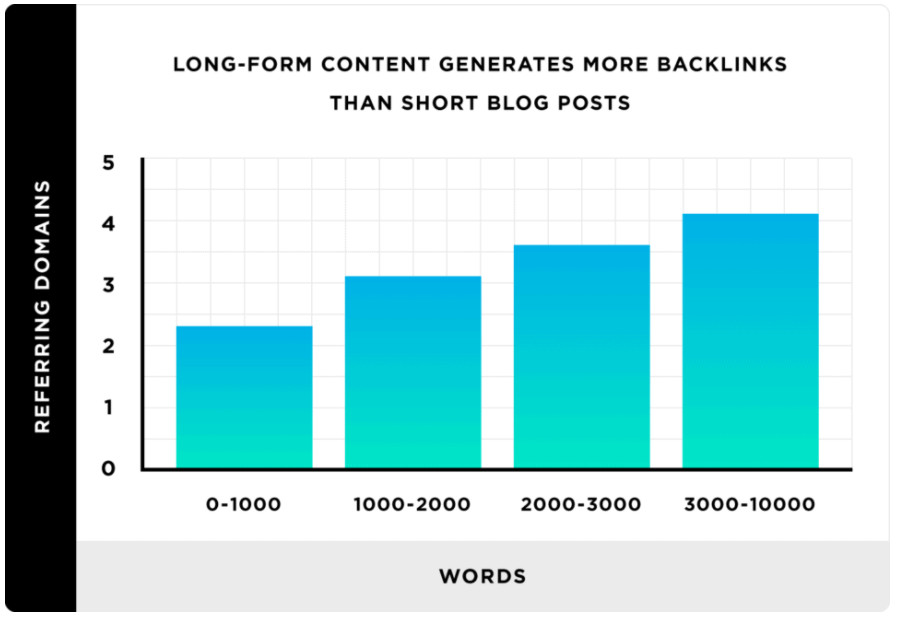
Most SEO experts recommend creating long-form in-depth content to attract more shares and links. However, Google’s Danny Sullivan noted that “people shouldn’t be stressing about word count.”
So, there’s no need to worry about having short articles as long as they answer the user’s needs. Just make sure that your content is, above all, useful, and answers all the questions that your audience wants answers to.
- Write SEO-optimized content with AI writing tools
SEO AI writing tools can help you save hours on content creation and eliminate the need to hire junior writers. They can also help you write SEO-optimized content to give you the best chance of ranking in Google.
- In this Free Jasper SEO Course, you’ll learn exactly how to create optimized AI-generated articles and content at scale that’s optimized to grow your organic traffic and get your business and content ranked on Google.
- This Free Surfer SEO Writing Masterclass will show you how to write AI SEO-optimized copy with over 19 lessons covering a range of SEO-related topics such as search intent, NLP (natural language processing), keyword research and evaluation, competitor analysis, and many more.
Here are some things to keep in mind when writing SEO-optimized content:
- A BuzzSumo and Moz study found that “deep research or opinion-forming content” attracts more shares and links.
- The content sweet spot for achieving both links and shares online is authoritative, opinion-shaping journalism on current topics or well-researched and evidenced content.
If you write content using AI writing generator tools or use online paraphrasing tools to rewrite sentences online, make sure you add value to the rewritten content and have it edited by a human before publishing it.
Here are some SEO blog writing skills to add to your blog content writing skillset:
- Learn how to write SEO-optimized content and writing-for-the-web best practices.
- Learn how to use SEO content writing tools to write SEO-friendly articles.
- Learn how to use the best AI writing generator tools to start writing AI content.
- Learn how to write captivating blog posts that encourage your visitors to become paying clients.
- Learn how to find creative inspiration to come up with the best topics for blog writing.
Read this advanced, in-depth guide to on-page SEO, which refers to the process of optimizing pages on your site to improve rankings and the user experience.
#11. Start link-building for SEO
The best way to generate backlinks from other blogs and social media sites is to write posts that are engaging and worth sharing. However, blogger outreach and guest blogging are also good ways to build links.
Matt Diggity has an excellent YouTube playlist for building backlinks. Watch his video below on the 3 pillars of backlinks.
Matt also recommends LinkAssistant, a link-building tool with one-click outreach for hassle-free link-building. Depending on your link-building strategy, you can choose your research method from the 10 most effective link prospecting mechanisms.
From guest posting opportunities to active giveaways, with the chosen search method you’ll get link suggestions that are best suited to your needs.
Loganix’s Guest Posting Service will help you earn links from trusted sites, with done-for-you prospecting, quality control, content creation, placement, and reporting.
SmartWriter’s AI-powered personalized blogger outreach tools will help you automate your entire outreach process 40X faster and 6X cheaper than using humans, by helping you create punchy personalized cold emails to build backlinks at scale.
Our guide to generating backlinks covers all the latest off-page SEO tips, including link-building, unlinked mentions, guest blogging, and many more techniques and strategies. In the video below, John Lincoln covers link building for SEO and provides a simple strategy that works.
You can also use the methods below to build your links and boost your visibility.
- Start a cold email campaign
Learn how to do cold email outreach for backlinks, clients, or sales and implement successful email outreach campaigns.
- Submit to Blog Directories
Submitting your blog and RSS feed to blog directories is a good way to start building high-quality links back to your blog.
Although most of them now charge for do-follow links, this is a good way to get started with link building because a healthy backlink profile has a mix of do-follow and no-follow links.
- Comment on other blogs
You can also generate backlinks to your blog by posting legitimate comments in response to posts on other blogs. With plugins such as CommentLuv, these backlinks are automated.
Of course, the “nofollow” tag ensures that you will get little juice from such backlinks, except for getting your blog seen by other commentators.
However, you can get a decent amount of referral traffic from these links, and get noticed by other bloggers, especially with a well-written comment.
- Use the Skyscraper Technique
Brian Dean’s famous Skyscraper Technique involves writing an epic piece of content and then reaching out to influencers and prominent bloggers to ask them to link to it.
Use these influencer marketing tools to connect with celebrities and social media influencers to promote your content and campaigns.
- Hire a link-building expert
Hiring an SEO link-building expert can enhance your online visibility by strategically acquiring high-quality backlinks, boosting your website’s authority and search engine rankings.
Additionally, they can analyze your current link profile, identify opportunities for improvement, and implement effective strategies to strengthen your website’s overall SEO performance.
Here are some link-building services to consider:
- Loganix’s Link Audit and Bad Backlink Removal Services offer a comprehensive examination of your backlink profile, identifying and eliminating any detrimental elements that may be hindering your progress.
- Loganix’s Backlink Gap Analysis Service will help you find valuable backlink gaps and then replicate them with a predictable turnaround (and a money-back guarantee).
- Loganix’s Guest Posting Service earns links from trusted sites, with done-for-you prospecting, quality control, content creation, placement, and reporting.
Also read:
- How To Generate Backlinks In SEO Link-Building Campaigns
- How to Outsource Link-Building in SEO Optimization Campaigns
- How To Do Blogger Outreach Campaigns
- How To Do Cold Email Outreach for Backlinks
- Link Building For SEO: The Definitive Guide (2022)
#12. Improve your internal linking
Internal links are the links you build on your website that point to other relevant pages. They are an integral part of successful SEO. They also help you increase the time that visitors spend on your blog which tells Google that your blog is useful to your readers.
Before you launch an external link acquisition campaign for a new page, search your site for other relevant pages and build some internal links to give your page an initial boost.
You can lower your bounce rate (another important ranking factor) and increase the amount of time that visitors spend on your site with internal links to previous blog posts.
The best way to do this is to manually link to these posts using the anchor text you want them to be ranked for. However, you can also use WordPress plugins to boost your internal linking automatically.
For some best practices in internal linking, read this post and watch the video by John Lincoln below.
- Internal Link Architecture
The links within your blog content are counted as backlinks or votes by Google. What they point to tells Google what you think are the most important pages on your site.
These internal links can act as powerful signals and you can often rank on the first page of Google just by optimizing the link structure of your own internal pages.
This form of on-site architecture is known as a Content Hub, a system popularized by David Trounce, an SEO Professional and the founder of Mallee Blue Media.
A Content Hub is a set of content (usually web pages) organized around a specific topic (usually a central page). It could be a category (like Excavator Transport) or a section of pages on a website.
Content hubs are the key to on-page SEO and converting visitors to your site. They work because they have a structure: a wide base around a high center.
As in the example above, one of the keys to this power structure is that your internal links only ever (usually) point in one direction, thus signaling to Google the most important keyword or internal page within a Hub – the series of articles or content all focused on a single theme.
#13. Update frequently and consistently
There’s no better fodder for search engine spiders than fresh content. According to a study by Hubspot, the more blog posts companies published per month, the more traffic they saw on their website.
They also found that companies that published 16+ blog posts per month got almost 3.5X more traffic than companies that published between 0 to 4 monthly posts.
Ideally, you should test your audience’s tolerance for publishing more frequently. If the rate of unsubscribes increases when you publish more often, you might want to scale it down and find a happy medium that is right for both you and your readers.
Alternatively, you can send out a weekly newsletter with all the week’s updates or publish fewer high-quality blog posts that are regularly updated to keep the information fresh and current.
When it comes to blogging, publishing consistency is more important than frequency. When your readers know that you’ll be posting a new blog post every week or so, they’re more likely to subscribe and watch for updates.
When it comes to blogging, publishing consistency is more important than frequency.
IndexNow is an easy way for bloggers to instantly inform search engines about the latest content updates on their websites. It pings the search engines that a URL and its content have been added, updated, or deleted, allowing them to quickly reflect this change in their search results.
Without IndexNow, it can take days to weeks for search engines to discover that the content has changed. With IndexNow, search engines know immediately the “URLs that have changed, helping them prioritize crawl for these URLs and thereby limiting organic crawling to discover new content.”
An easy way to implement IndexNow is to install the Rank Math SEO Plugin for WordPress and turn on this option in the settings.
#14. Refresh outdated content
Outdated content can cause your blog to rank lower in the search engines and leave your visitors with a poor impression of your website.
One SEO best practice is to learn how to use the best content audit tools to create a content audit report and leverage the data to prune or update old blog posts for SEO and user experience.
With Surfer’s SEO audit tools, you can automate a lot of work that you’d need to do manually otherwise, and the SEO Audit gives you a step-by-step recipe for higher rankings in search engines based on data from your organic competitors.
Find out how much content you should add or remove to achieve the sweet spot for your website. What important terms do you need to add to serve your users better? Is your page fast enough?
With Surfer’s SEO Audit tools, you can access all this data in less than a minute and delete, consolidate, and redirect old blog posts that don’t get any traffic – and focus on updating the ones that do.
As Neil Patel, SEO expert, recommends in his video below, you should keep your blog posts updated with the latest information and rewrite, redirect, or consolidate old blogs to improve the relevance and usefulness of your blog content.
Social shares are important because they help your blog post get discovered, so getting more shares and Retweets on social media networks is never a bad thing for your SEO efforts.
Build communities on the big three networks – Facebook, Twitter, and LinkedIn – the best networks for sharing blog content.
If you publish content in multiple formats (images, PPT, infographics, videos, PDFs), you can expand your list of networks to include Pinterest, Slideshare, YouTube, Vine, and Visual.ly.
Engage your social community by sharing third-party content as well as your own blog content so that your community knows that you’re interested in sharing great content, and not just plugging your own.
#16. Build a mailing list
Building a mailing list is not strictly an SEO tip, but it ensures that you get repeat traffic to your blog by capturing emails and sending out regular blog updates to your subscribers.
Having a mailing list also helps you become network-agnostic, so should your Instagram profile get deleted by mistake, you can always start fresh by sending out an email and asking your subscribers to follow your new profile.
Learn how to use a lead-generating quiz to generate leads, build your list, and grow your audience in a way that’s enjoyable and natural for both you and them.
You can choose from several email marketing tools to capture and follow up with your subscribers. These services can be set up to send an automatic update to your subscribers every time you post new content on your blog.
#17. Leverage Pinterest & YouTube
Pinterest is not a social network. It’s a visual discovery engine that also requires SEO to rank higher.
However, there are some essential differences between Google SEO and Pinterest SEO and you need to understand these differences to boost your search engine ranking on both Google and Pinterest.
Bloggers who were early adopters of Pinterest began getting hundreds of thousands of visitors from this search engine. Today, Pinterest has introduced Pin formats like Idea Pins, which can help you boost branding but don’t send traffic to your website.
However, Pinterest can still be an awesome source of traffic for bloggers, and these Pinterest courses and tools for bloggers will help you learn how to use it the right way.
Watch my Pinterest Masterclass on the AskAviArya Show below, where I explain how to get traffic from Pinterest to a new blog.
YouTube is also a search engine and with video becoming the #1 preferred form of content online, all bloggers now need to have a YouTube channel, and possibly, also a podcast.
According to Neil Patel, YouTube search traffic is high-quality traffic, and it’s much easier to rank and generate those views than on traditional Google search. Best of all, you can rank well on YouTube within days… even hours.
In this Video Production Essentials course, you’ll learn how to create, edit, and post high-quality video content online. This course covers the entire video creation process, from pre-production and shooting your own videos to editing, adding title cards, adding basic graphics, and finding success on YouTube.
If you’re an introvert who doesn’t enjoy being in the limelight but understands the benefits of video marketing and wants to add the power of video marketing to your online marketing plan, read my article below.
#18. Build a powerful brand
Misinformation and fake news are the scourges of the internet. To stem their spread, social media sites like Facebook hired independent fact-checkers to help identify and review false information.
Google’s E‑A-T guidelines which prioritize Expertise, Authoritativeness, and Trustworthiness – especially for content that affects Your Money or Your Life (YMYL) – are also a way to stem the flow of misinformation online.
This trend is proof of the fact that old-school journalism ethics and standards don’t just apply to print journalism. Ethics in media also apply to writers who want to become authoritative bloggers.
The EX-CEO of Google, Eric Schmidt, noted that brands are becoming more important signals of whether or not content can be trusted.
So, if you want to do well in the long run, you have to build a brand, and according to Neil Patel, the future of SEO is in building a brand. But a brand is hard to build, no matter how good of a marketer you are.
Learn how to create, strategize, launch, and grow a personal brand with my free personal branding eBooks which will help you learn how to build a powerful personal brand.
More personal branding tips:
- Create An Exceptional Brand: Stand Out From The Competition
- Using Brand Archetypes For Personal Branding With Kaye Putnam
- Effective Personal Branding Tips For Developing A Killer Personal Brand
- Personal Branding For Coaches: How Do I Market My Coaching Business?
#19. Do regular SEO audits
Old and large websites tend to accumulate broken links and 404 pages. Dead or broken links can hurt your website’s ranking and searchability as 404-related internal and external links negatively on your website’s indexability statistics.
You can check site rankings with SEMrush’s Site Audit™ tool which will help you find the issues hurting your SEO ranking in a click. It includes all essential checks and combines multiple types of website audits to help you save time and budget while fixing your website.
Receive prioritized and promptly actionable SEO insights delivered by seasoned SEO strategists with Loganix’s SEO Audit Services. Benefit from clear and actionable SEO recommendations, supported by the latest trends and best practices, to enhance your visibility and drive targeted traffic.
In order to clean up broken links and maintain site hygiene, you can also hire an SEO freelancer to do an SEO audit, or use a tool like Screaming Frog to run a site audit and find 404 errors, dead links, and broken links.
#20. Optimize for Voice Search
According to Brian Dean, voice search isn’t “the next big thing – it’s already here” and it’s only getting bigger. So how do you optimize your site for voice search? That’s exactly what Brian’s Definitive Guide to Voice Search will teach you.
However, you don’t have to handle this task yourself. You can outsource your voice search optimization project to an SEO freelancer.
Everyone is starting to use devices like Amazon’s Alexa and other virtual assistant tools to perform voice searches. In this video, Neil Patel explains how you can generate more search traffic using Voice Search.
#21. Stay put
Once you create your blog, stick to the same domain for as long as you continue to publish.
You could end up losing a lot of your organic traffic, your readers, and all your search engine listings if you decide to move or change your domain and URLs.
If you install the SSL protocol and change your site architecture from http:// to https:// you can install a WordPress plugin to force redirects.
SSL is an important part of website security as Google now requires sites to be secure and have HTTPS in the URL. The good thing is that you can secure your main domain and sub-domains with a single certificate and get a cheap Wildcard SSL from a trusted provider.
I hope you’ve found these SEO tips and tricks helpful. Remember that search engine algorithms are fluid and ever-changing, so tactics that worked in the past may no longer be effective presently.
However, creating high-quality, helpful content and link-building in SEO campaigns will always be the most important aspects of optimizing your website for search rankings.
If you want to keep learning, you can get SEO certification free and even build a career in this field. By using these bloggers’ SEO tips listed above, you can work towards improving your website rankings and search engine traffic.
Blog writing tips & tools
- How to outsource SEO services to an SEO specialist
- How to outsource SEO-optimized content & blog writing services
- Get SEO certification free with the best free SEO courses
- SEO content writing tutorial: How to start content writing for the web
- Write SEO-friendly articles with SEO content writing tools
- Earn money from blogs: 10 blog ideas that make money
- How do famous bloggers make money blogging in 2022?
- How to learn travel writing & become a travel blogger
- How to become a successful food blogger
- 16 types of writing skills and how to learn them
© 2020 – 2024, Priya Florence Shah. All rights reserved.
Priya Florence Shah is a bestselling author and an award-winning blogger. Check out Devi2Diva, her book on emotional self-care for women. In her spare time, Priya writes science-fiction novels and poetry and chills with her two-legged and four-legged kids.
Discover more from Business & Branding Tips
Subscribe to get the latest posts to your email.



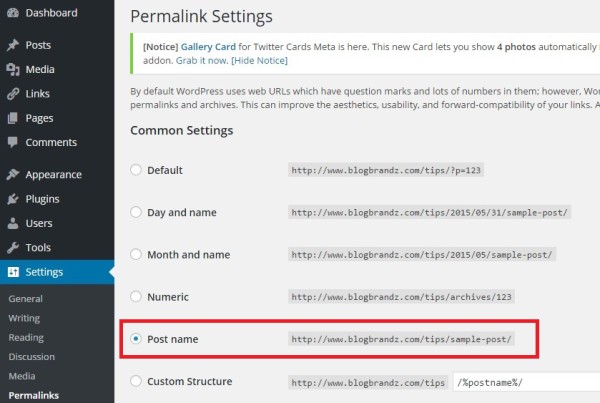
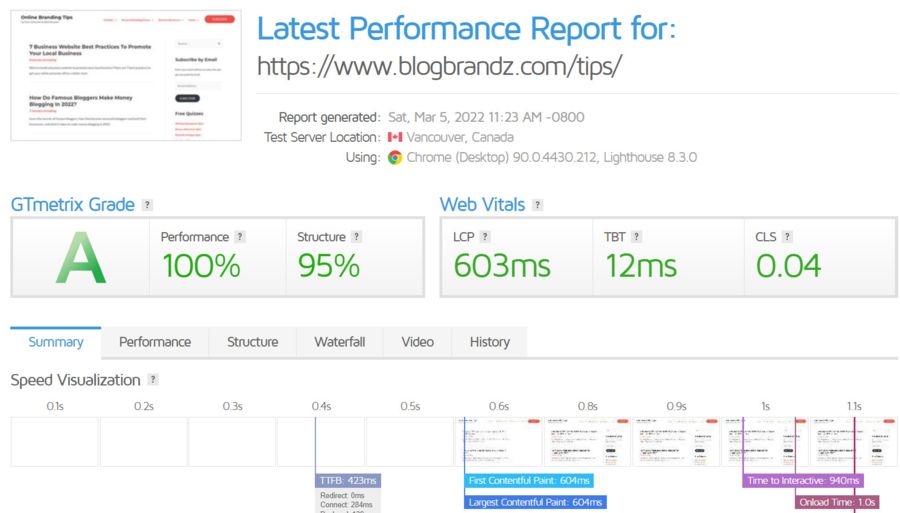
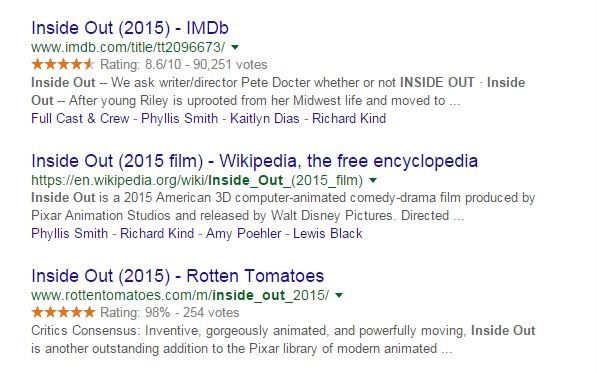

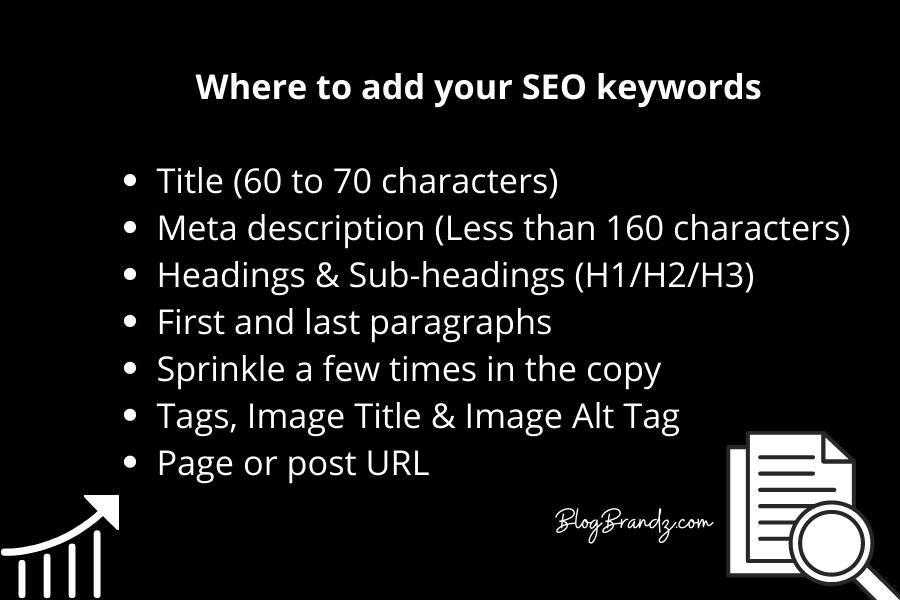

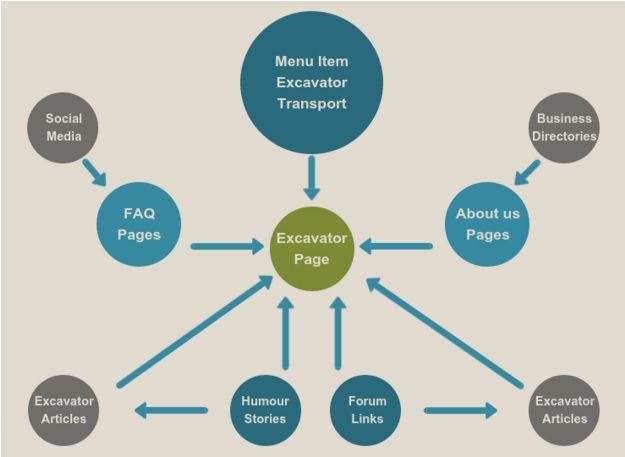
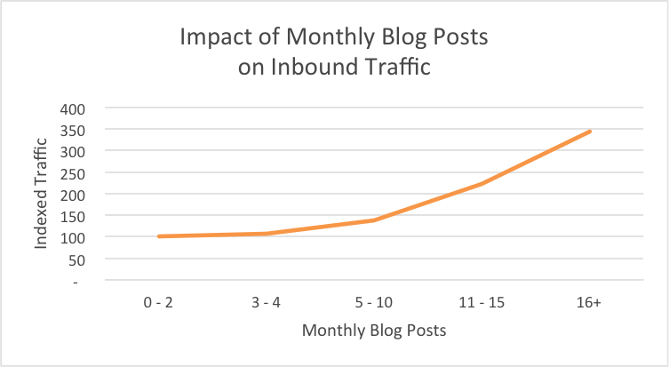


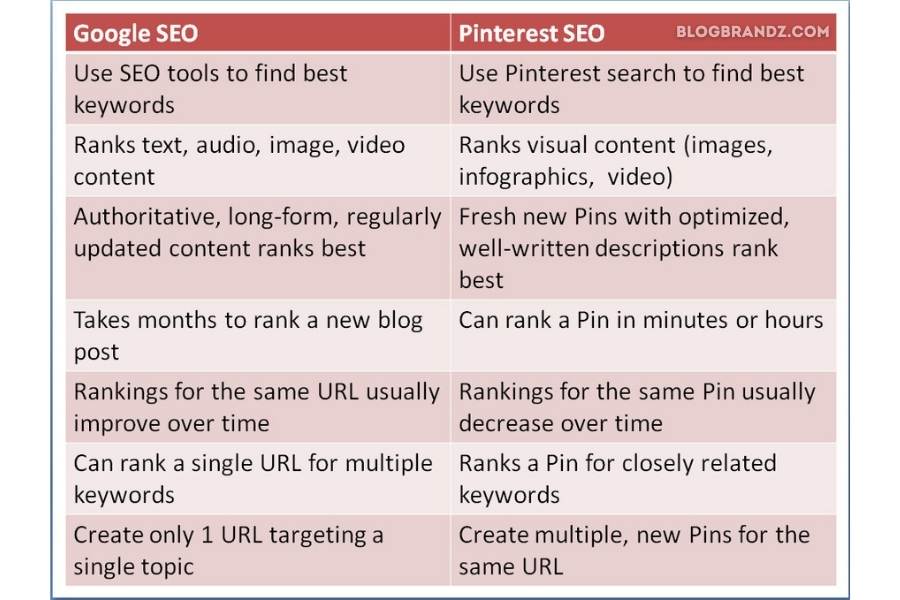
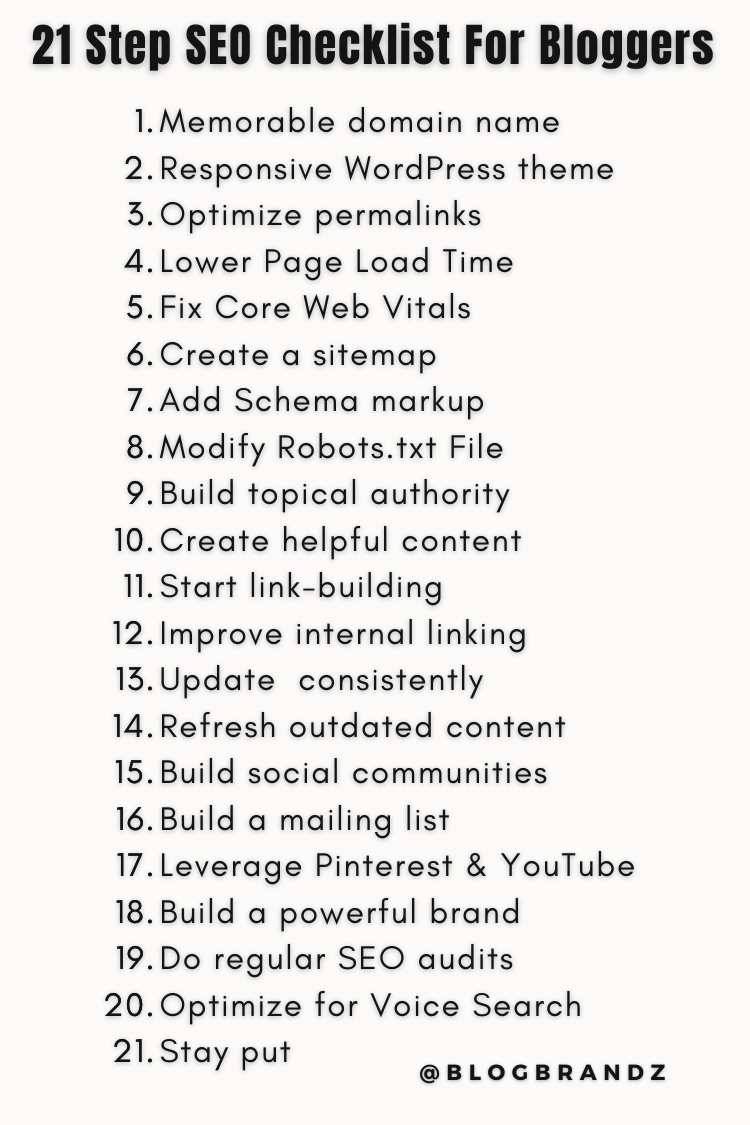




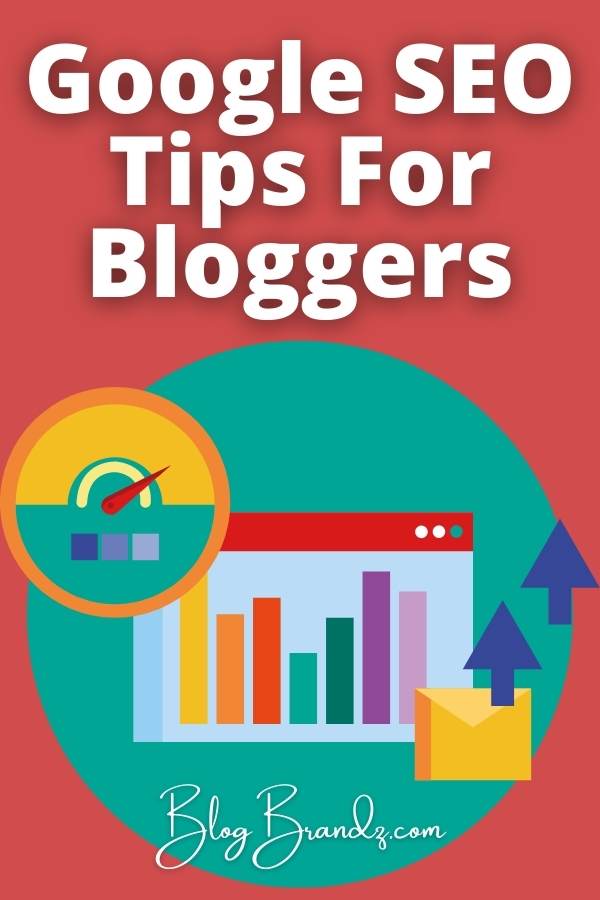
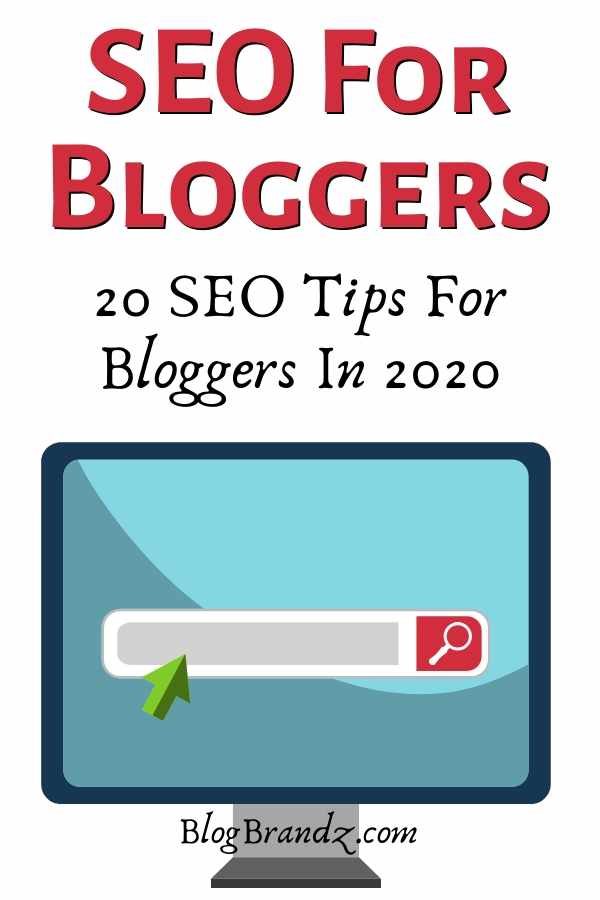

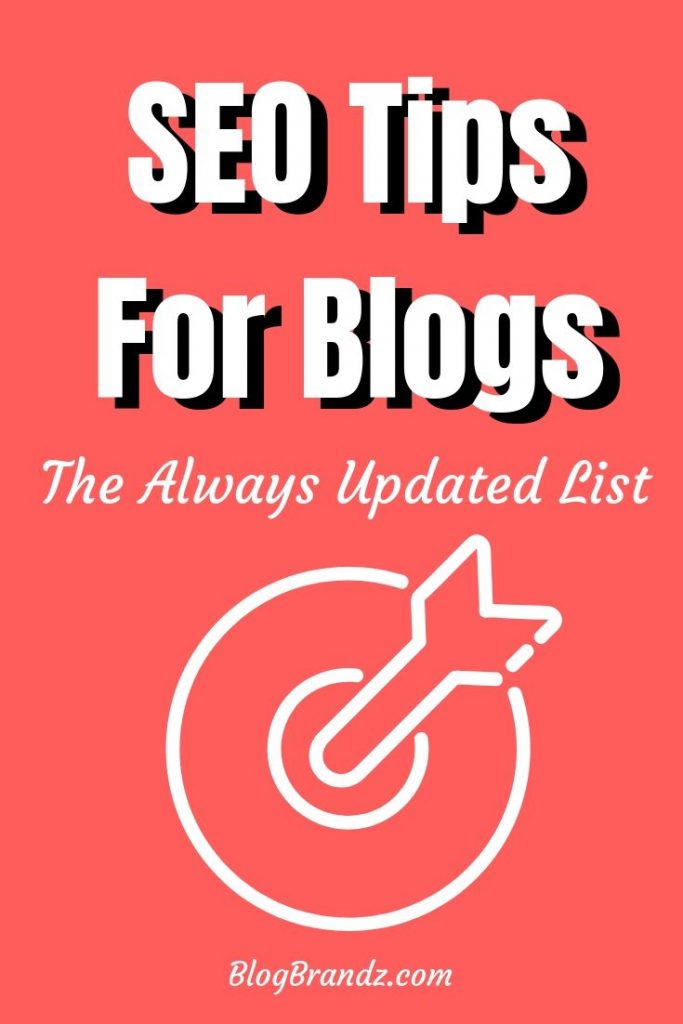
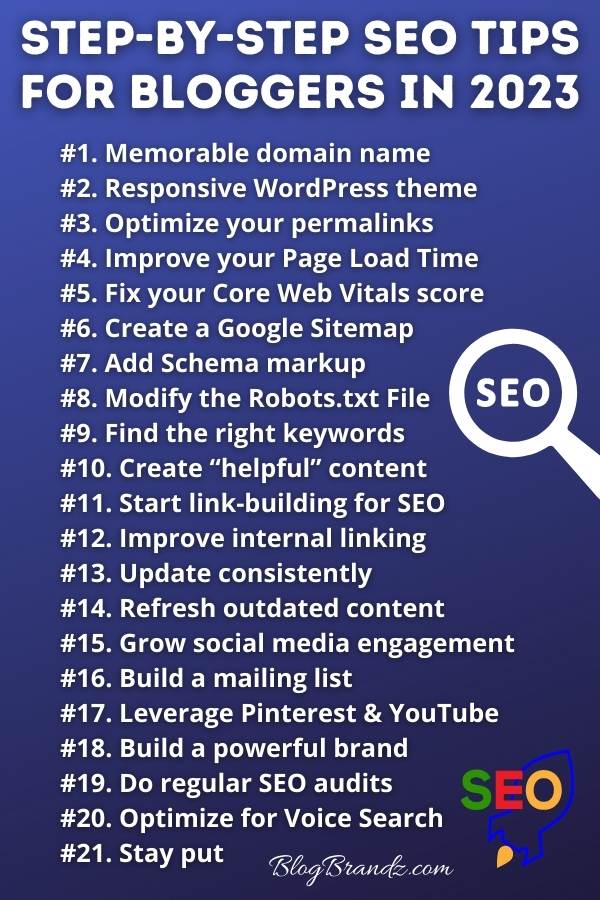

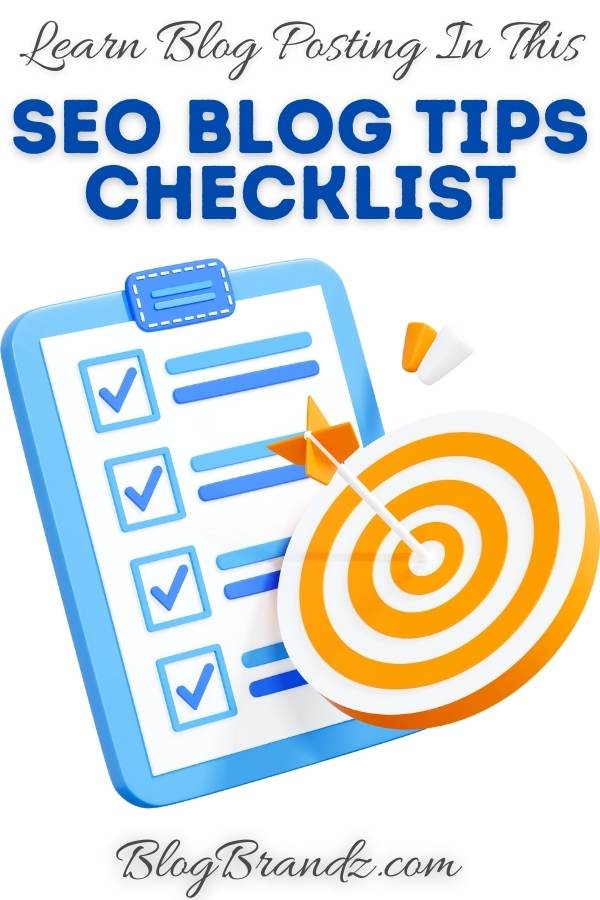
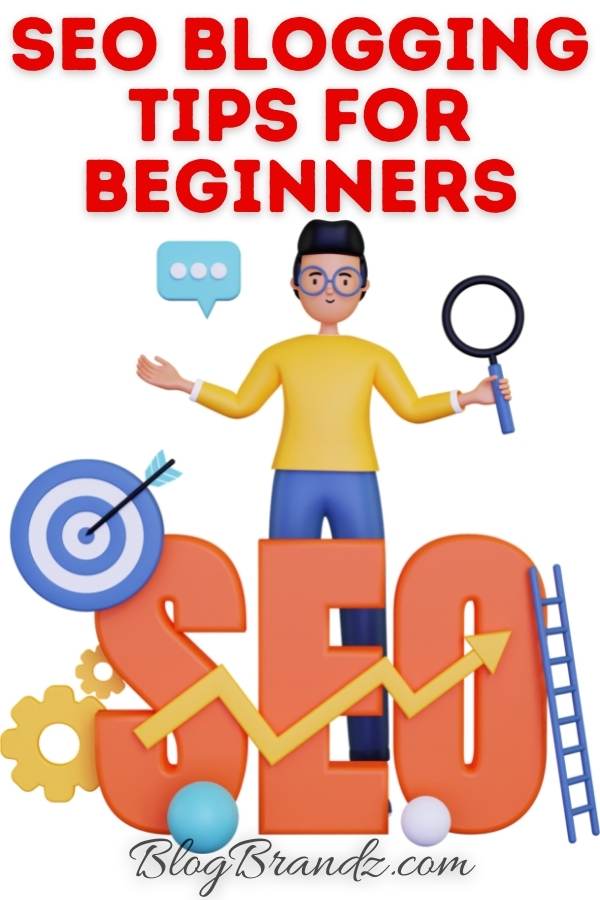

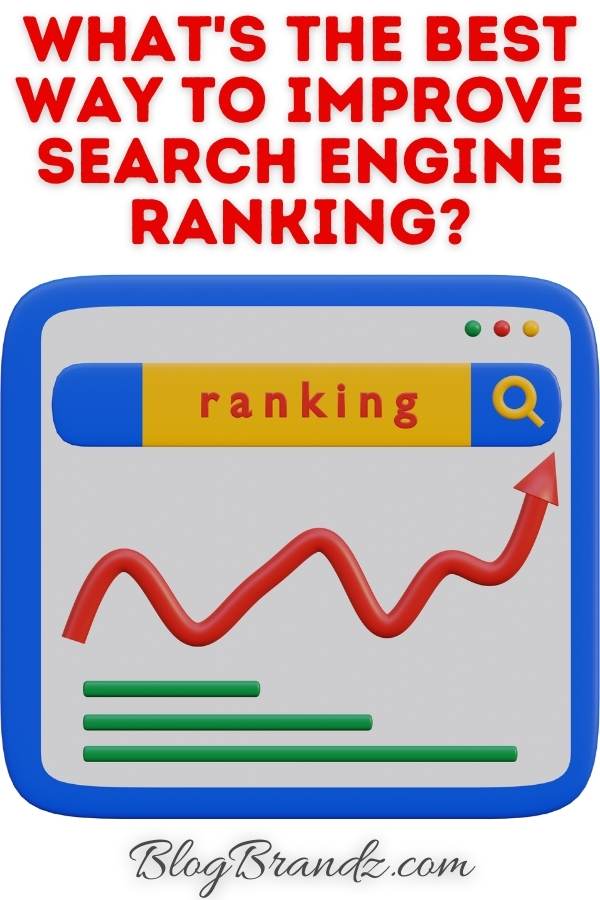

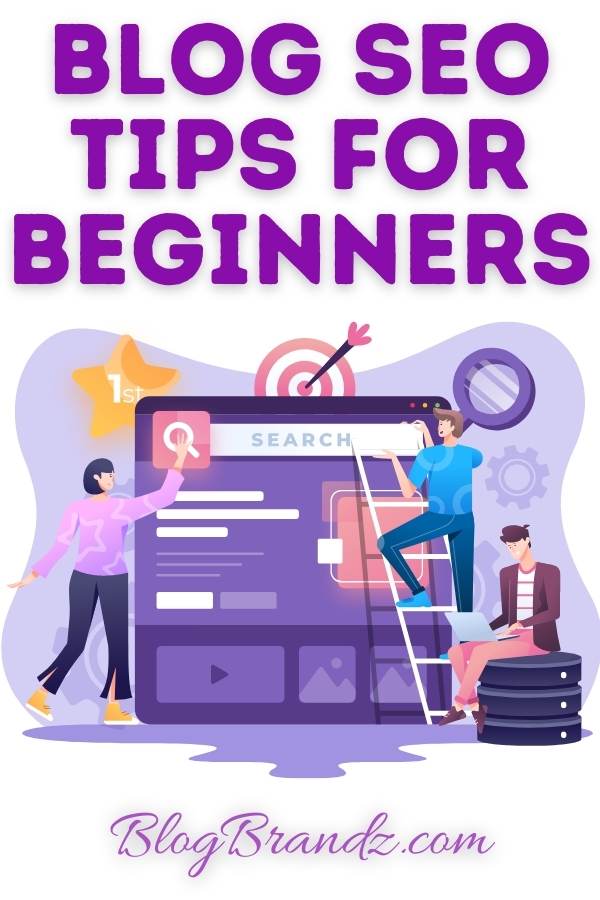





thanks excellent
Glad you liked it, Mr. Shetty.
Brilliant article!
Thank you.
This is a topic that’s near to my heart… Many thanks! Is it OK to share on Linkedin? Keep up the good work!
Yes, you’re welcome to share the link to this blog on LinkedIn.
Hi there, nice post and nice job . First my sincere congrats,
Let me comment a part about frequency of posting.
I think many seo’s are mistaken that freguency of posting is related to rankings. Which is not.
Content frequency is only for getting more and better targeted traffic. Rankings are achieved with promotion.
I agree one needs to make regular posts and content (I am doing it on my blogs regulary daily – furniture market here in Slovenia), but that must not take time away from promoting. 10% to 90% is ratio form making content versus promotion.
I think many content creators are missing that (me too many times).
Regards, Matija
I agree totally, Matija. As Derek Halpern said, you need to spend 20% of your time writing your post and 80% promoting it. That’s pretty close to what you recommend. That’s why I wrote a post on Blog Promotion Tips here. The more ways you use, the better.
Awesome post. Thanks for sharing. And the information that you provide in your post is very useful to create a quality blog.
Thank you. Glad you found it useful.
Nice article. Thank you for sharing this useful information and it is very effective for the people who are all looking to get the details on SEO tips for blogs.
Thank you, Raghu. Glad you found it useful.
These SEO tips are really very useful. It gives a clear picture of what makes a site outstanding. Thanks for sharing
Glad you found them useful.
These are all very interesting blog tips. We already following these tips and really get a positive points. If someone try to start their blogging journey then they should must keep in mind all these tips. Thanks for sharing this great tutorial with US.
Happy that it was interesting to you, Taposh.
All the tips here are really useful and informative. Bloggers want to get success but without proper knowledge, they will not successful. You tips will help to reach the goal pf success. Thanks for your inmteresting article.
Thanks for the feedback, Sahadath. Am glad you found the tips useful.
Good information. Thank you for sharing SEO tips.
Helpful information on SEO. It makes people understand what is really needed on successful SEO efforts.
Wow I like the content quality that you have shared with us. Just a quick query.. I see you have a table of contents before starting the points. Apart from the navigational benefit is there any hidden seo value for structuring the blog post in this way?
Hi Lance,
I doubt the SEO benefit would be significant. I just use the TOC for a better user experience.
Very subtle and easy to understand tips. Thanks for this additional information. Looking forward for more.
Thank you. I will keep this list updated as I learn more SEO techniques.
Good post.
Thank you, Bella
Quite handy SEO tips for blogs. When we follow the proper SEO methods, we can rank well for our blog or website in search engines.
Thanks, Angela. That is true.
This post is fantastic, Great to visit here, Excellent work this is.
Thank you, Rosy.
Great share about blogs. Blog posting is really an important part of SEO. Using Long tail keywords is really beneficial.
Yes, using long-tail keywords is the key to high rankings, Andrew.
There are amazing tips in the net for SEO and yours are definitely one of them. Thanks for making me learn more.
You’re welcome, Berth.
SEO for blogs is the same as SEO for any site. For Google inbound links continue to play a huge role, but on-page areas of focus should be title tag, h tags and body copy. If you need to be more technical than this, then products like Yoast really wont help. At that stage relative position of H tags and structural markup start to play a part. (Which Yoast cant handle). In an ideal world at this point you will have coded your custom WordPress theme and have a good handle with regards to SEO.
Thanks, Mark. Those are valid points.
It’s a really nice article. I learnt about SEO, especially interlinking of articles.
Thank you, Obaoye.
Hey,
I have been using Grammarly for so long and it’s really helpful. You don’t need to look upon the spelling mistakes your own. This tool will do it for you.
The SEO audit is required to get a high ranking. Interlinking is one the best things. It would help you to reduce the bounce rate of your website.
Thanks for the article.
~Madhu
I use Grammarly too, Madhu. Improving your language can definitely improve the user experience. Have not used the SEO audit yet, but I will check it out.
Wonderful share about blogs. Blog posting is absolutely an important part of SEO. Employing Long tail keywords is absolutely beneficial.
That it is.
Thanks Priya for sharing this informative post. After Mobilegeddon responsive blog is very useful for better click through rate.
That is very true, Ethan.
Nice article Priya – I’m glad you made the point about AMP pages which are becoming to be more important for mobiles.
Thank you. Glad you liked it.
Very much informative post. My word press site is in initial stage & would like to implement the above mentioned points.
Good luck, Omar.
Hey Priya Shah,
Great SEO blogging tips!
Here, I discovered some special tips and tricks with the deep knowledge of search engine optimization.
I notice that you mentioned a brilliant infograpgic with the key notes to the powerful structure of SEO.
I found this very informative. And I’ve been long time fan of skyscraper methods.
Love the way you work dude!
Thanks,
Thank you, Shakoat.
Nice Post,
This is a very helpful post for me, thanks for sharing valuable information
You’re very welcome.
Hey!
Excellent SEO tips. I’m still a long ways from feeling competent at this, but I do know that the posts where I do pay attention to SEO, tend to receive the most traffic. Thank you for the reminder that I can’t afford to not be attentive to this.
Thank you, Morris. Good luck with your optimization efforts.
Hey Priya .. I have found some really interesting and useful SEO tips here. Learn a lot of things about SEO optimization and now have the deep knowledge of interlinking. I Will use on my blog for sure. Great work and thanks for sharing this wonderful article.
You’re welcome, John.
Hi Priya,
You shared very good SEO tips for blogs. I think for link building, web directories play an important role because they don’t only help to increase website’s DA but also increase traffic. But choose good quality of web directories instead of free spam directories. I know some good quality web directories personally, These are doing well. I submit my websites in these directories and i got good traffic from these directories. These are human reviewed and don’t approve all listings except quality one.
Thanks for that resource, David. I will check it out.
Yes Keyword research and build a quality back links play major role in SEO & make your ranking higher.
Yes they do, Kalpesh.
Great review, absolutely the best tips for SEO! I think the key here is regularity of everything – posting, analyzing, just being in the game
True. Consistency is of prime importance.
Still a very informative article in 2018 Priya.
Thanks for the great tips
Thank you, Michel. Glad you found it useful.
Hi Priya,
Great article! These are old but gold SEO tips. SEO is always changing especially with frequent algorithm updates of Google but what you mentioned are all a must.
Thanks, Adrian. Some things, such as good content and backlinks, will never go out of style.
Certain tips need to be follow up while doing seo of your site as improving the website loading time will boost up more and more visitors to its page and also depending upon its User interference how much time visitors spend upon their website and section of your website.
nice post but i am using blogger can you tell blogger plagging
Even though this blog is a little old some of the tips mentioned still hold true in 2018. Great article. Thanks for sharing
Thanks, Sam. I think there are a few basics, such as good content and links that will always remain important.
I really wish that when I first created my blog, I would have understood just how important SEO is. I realized it later, but it would have made my struggling first year a lot easier. Thanks for the post!
Glad you found it useful.
Amazing Tips, Priya.. Thank You For Sharing this SEO tips ! really this is awesome tips sir for me
Thank you, Sagar.
Thanks for sharing valuable information with us.
This blog will really help every digital marketer at a beginner level. But what I suggest is that at the very first beginning understand what do you want to do or what your client needs in digital marketing for their business.
wow, PRIYA FLORENCE SHAH, this is the post every blogger should read to grow as a Professional Blogger.
Yes, all the tips you have explained really works, placing a keyword in the permalink, Title & content and optimizing a blog for speed & mobile works better to grow higher in Google.
G+ is going to die so I would suggest all newbie blogger to use Quora & Reddit to grow audience network, which also helps to improve ranking with quality backlink & traffic.
Excellent tips, Bipin. I love Quora but am not very active on Reddit.
I really admire such posts on SEO tips. These tips are useful for all business and internet marketing agencies to get desired traffic and leads.
Social media should become a core part of your marketing and SEO campaigns. Consider a high level of engagement on social media as important to SEO as it is to general marketing.
I cannot say anything about your article. How informative is this!! Such an amazing blog. I am really glad to read your blog. Many many thanks for sharing this.
Thank you, Adelina.
Thanks for sharing this informative article. really this is very helpful tips for me.
How do I find the best keywords?
Use a tool such as ubersuggest
Yeah, I forgot to use long tail for my blog.I knew that this will add more value to me but yet I forgot it to use, Now I will implement in my blog and Yes dude I will use this blog commenting option as well I think according to you it will make big difference in my website so thank you very much for sharing this valuable information
Good luck with your blog, Umesh.
thanks for this great article i really like this post and i love your blog
Thank you, Puran Lal.
Nice article & SEO TIPS!! Thank you for sharing the infomation..
Glad you found it useful.
A great piece of information. I think this is what I was exactly looking for. All tips in a single click. I would definitely try to follow these suggestions. I really enjoyed this post and I hope you will keep posting this kind of post in future.
Glad you found it useful.
Hello, after a long time, I have read such an amazing Blog. Glad that I came across this blog and got learn so many things about Seo .Thank you for such an amazing article.
Glad you found it useful.
Thanks for sharing the great article. Very useful tips and information. Keep up the good work.
Glad you found it useful.
Very useful information. Thank you for this.
Glad you found it useful.
Nice article. I am in this things for quite long days .This article helped me to learn some thing about this topic .
Glad you found it useful.
Make sure your articles link to each other in meaningful ways. Search engines like networks, both internal and external. Making sure your pages are connected will increase SEO relevance and allow users to jump all over your blog.
Yes, internal linking is very important.
Thanks for sharing such a useful blog on Seo Tips for Bloggers.
Keep sharing such kinda stuff
Glad you found it useful, Prachi.
Thank you for sharing such a good information.
Glad you found it useful.
I know you originally posted this years ago but they still are very helpful SEO tips as what you’ve said. It’s also interesting to see how SEO ways are improving over time.
I updated this post as often as possible, Mavis. Some tips are evergreen, of course.
This is a practical example of the 8th point in this blog. Thanks for sharing.
Glad you found it useful.
The consistent technique and tactics are quite impressive. Thanks for your insightful post. We are benefited in a great way.
Glad you found it useful.
This article is well written and very informative. I really like this site because it offers loads of information to its followers.
Glad you found it useful.
Thank you for sharing such a gold piece of content. According to my experience, Getting relevant backlinks from high page rank sites is very important in Off-page SEO. On the other hand, keyword research and analysis is very crucial in On-Page SEO.
Hi Priya, Great information!!! I’m a beginner Blogger. And I have read this post. Here has clearly explained for Search engine optimization tips for bloggers. This article very important for me and another blogger. So, you can read this article and collect SEO knowledge. Thanks, Author and I’m waiting for your next tips.
Glad you found it useful, Melissa.
awesome seo tips thanks mam
Best Article, learned a lot about SEO with this helpful article, Thanks!
Hi Priya,
Interesting posy out have here! Thank you for breaking it down so well. The insights are very informative and helpful for everyone in the SEO industry, particularly, for the beginners. As SEO transforms over time, these valuable tips are highly needed. Keep posting! Can’t wait to read more of your posts soon.
Solid guide this was very easy for me to read and understand. I would recommend this to any new blogger who needs SEO advice.
Link to internal pages on your site.A lot of content management systems automatically do this, but if yours doesn’t, you’ll want to be intentional about linking to your most important pages directly from your homepage and cross-linking them with each other.
Hello priya,
Thanks for sharing such a great SEO blogging tips.I discovered some special tips and tricks with the deep knowledge of search engine optimization.I notice that you have mentioned a brilliant infograpgic with the key notes to the powerful structure of SEO.I found this very informative.I m wating for your next interesting blog to read and make improvements.
You’re welcome, Shweta. Do connect with me at priyaflorence at gmail dot com. I’m always looking for good freelancers.
Yes, Priya that all the awesome tips for SEO, if you do SEO in a proper way and follow the tips step by step so, Google will give you the best result and also you will get traffic on your website and increase ranking. Thanks for this article it is such a fantastic post.
Thank you, Afrin
Hi Priya Florence Shah, I love your whole article and your SEO tips, but my point of concern is which method of the backlink is good for link building.
I recommend you follow Brian Dean’s Backlink blog to learn more about it.
Great ideas. As per my knowledge backlinks are also very important. Try to generate high quality backlinks for your blog.
Some really great tips here! I run two affiliate blogs and especially when you are first starting out these are the kinds of tips that can help significantly!
Thank you, Kevin.
Great Post!! thank you for sharing this awesome seo tips really it’s very useful for me
Glad you found it useful, Aakash.
Thank you so much for these amazing tips. I was planning to start a blog channel and these tips are very helpful fir me.
Glad you found it useful, Alex
Hey Priya, Thanks for sharing this detailed and informative article. For beginners it’s essential to understand the basics of SEO and digital marketing.
Glad you liked it, Meher
Thank you for sharing this information. This post is very usefull for me.
Thanks a lot for this amazing,helpful and amazing post. I am waiting for your new Post and please give me update when you publish new one .Just Keep it up.
Really appreciate the efforts the author has put in drafting such helpful blog post. Any new blogger who is struggling to get his/her website rank on google should read and implement these tips that you mention.
Glad you found it useful.
Hii, You write a grate article, Its very helpful for me. Can you provide a knowledge about best Email marketing tips for 2020, what should be the points to get better result.
Thanks
Hey there, it’s too helpful for me, so detailed and informative, thanks for sharing cheers..!!
Priya,
What a fantastic post! This is full of useful information I can’t wait to dig deep and start using the resources you have given me.
I wish someone gave me this post when I was starting my blog. However, I am growing gradually. The most important tip I learned is to be patient and not give up.
Slow and steady wins the race.
I’m looking forward to reading the articles that you’ve linked to here.
Thank you, Ola. So glad you found it helpful.
Thanks for sharing. It’s really amazing blog. After reading this, i improved the page loading speed and other tips are also very helpful.
Thanks for sharing amazing content
Glad you found it useful.
Thanks for sharing such an Amazing article. It was worth reading. Today all businesses need websites that rank well on the search engines. Most of the traffic for a website comes from search engines so SEO link building is important for all websites. Off-page and On-page SEO both are important for ranking high on the search engines.
I hope you will share some more information about the SEO link building.
Keep sharing more content like this…
Boost your business through SEO and digital marketing
SEO is getting complex this time. The harder the links to get, the more it is powerful. And looks like those easy to get links are not working anymore. Above all, it is the content that matter.
The SEO process is changing very rapidly. To keep yourself up to date accordingly you ha to follow various blogs on regular basis. This is one of the quality blog i found suitable specially those who belongs from blogging industry. Thanks author for sharing such a beautiful content with us.
Thank you, Ayan. We appreciate your feedback.
Thanks you for sharing an informative tips but now days Seo is very tricky and Google more smarter than you. All businesses need websites that rank well on the search engines. There are many things to boost your website rank on google.
This is one of the best blogs I’ve read on SEO in a while. All the tips given are workable real life tips. Thanks to the author for this post.
Just subscribed also for the more awesome and useful content by the author.
Thank you, Shivangi
This is very good tips for search rankings i applied this seo tips and got best results.
Great article Priya! I really thought engaging your social community by sharing third-party content as well as your own blog content was spot on. I came across this article that might be helpful to readers since this article mentions LinkedIn.
Thank you, Stephen
Hi Priya,
You have covered almost every tip a blogger needs to succeed online. But one important tip is focus and the problem of shiny object syndrome. These two things can make or break the online blogger.
Thanks for the great article.
This is a great article with lots of informative resources. I appreciate your work this is really helpful for everyone.Keep Posting.
This is a great article ,thank you for acknowledging us.
Hi, This is a real, eye-opening info for me too. I’ve been struggling to get some of my best contents to ranked high, felt like I’d done everything I could.
I’ve read this article of yours twice now and am going to apply as much as I can. Thank you for sharing your advice!
Glad you found it useful, Arun.
Hello Priya, You have secured pretty much every tip a blogger needs to succeed on the web.I’ve perused this article of yours thrice now and will apply as much as Possible. Much thanks to you for sharing your recommendation.
Welcome, Amit.
The SEO tips are really great and I do agree that with personal branding the things become easier.
Also if you are really serious about the business then Linkedin is the best social network to share your content.
Thanks once again for the amazing SEO tips
Wow! This is awesome Priya! I would like share it with my all of agency member. They have follow there very important seo tips for blogging and affiliate sites. Thanks a lot for your innovative information
Thanks for sharing the detailed post about SEO. The content is very informative. Definitely, it will help every search engine optimizer for improving their SEO services skill and boost their business online.
Your writing is beautiful and elegant.
Very informative I have benefited a lot
from your writing. We hope that in the
future too, you will improve and benefit
the desired customers by writing many good
and informative articles.
Blessings remain for you.
Thank you, Paul.
I really love your work Priya! I guess you made a lot of efforts while listing all these 21 tips. They helped me to understand SEO for blogging in a better way. Keep up the good work.
Regards,
Manik.
Thank you, Manik.
WOW! Thank you so much for such an appreciative post. Keep posting more such type of content in the future .I really enjoyed reading it.
Hi Priya Florence Shah!,
wow, what a great article. I always have a very great pleasure to read new analysis from you.
Please keep up the good work.
Thanks!
Many thanks for your valuable content. You are an inspiration with your hard work. It will help bloggers to rank site in serp.
Keep up the awesome work and know that you’re appreciated!
Thanks
Sachin
It’s very useful for me as I am a beginner in the field of SEO. I implement the things that you told us about on my Website. Keep Posting and Sharing more about this.
Thanks for sharing such important articles. It is really helpful for me, It contains so much good information and advantages Thank you so much for sharing such a piece of wonderful information.
Glad you found it useful!
Thank you for this blog on SEO tips that is very important for all. Thank you so much for it.
Great and useful post. Thank you. Do you feel the paid version of Yoast is worth it, or stick with basic? Also, do you recommend a pop-up ad plugin that is SEO friendly? Thanks!
Free is fine. Rankmath is also good. I don’t recommend popups at all. It’s better to have a button somewhere on the page that opens into a form.
Hi Priya,
Amazing blog and website overall. The whole look & feel of the website from formatting, navigation to clarity in content.
About the post, great checklist for developing an effective SEO strategy for bloggers. Hope everyone can follow this to the core.
Hi PRIA, This is a great content about SEO tips. You have discus the essential things such as domain name, permalinks, long-tail keywords, page loading time, sitemap, Robots.txt,and more. All these points are more important to rank a site.
Thanks a lot for sharing this helpful post and hope to get more good tips from you in the future.
Thank You.
How often would you recommend to post per week?
It’s about quality not quantity. Your content really needs to stand out and you need to promote every article.
Hello,
Excellent post. You have written in everything in detail. This is the best of the best. Thank you so much for sharing such important information. This will help me a lot.
keep posting.
Nice and informational post! I never knew we had to optimize text for voice, will give that a try for sure! Thanks for this lovely post!
Hello Priya,
What a fantastic post! You clearly explained about seo tips. Got very clear knowledge about add rich snippets,Improve your internal linking etc . But I want to add some examples sitelist to your post.
I’m going to have to share this post.
Hi!
This explains everything like we say from head to toe.
“SEO as a discipline and Google as a God” I really liked that quote it says it all. SEO is highlighted pretty well in this post. Thanks for sharing such a quality content.
Does changing meta tags often affects the SEO, because as branding agency, our client expect us to increase the CTR. So changing metatags are the only way? Please help me out
You can test metatags or Titles to see whether there is any increase in CTR, but it will take you a while to get statistically-significant results depending on your traffic.
Thank you for sharing these SEO tips. A big challenge facing small businesses is how to rank well on Google. These tips should help anyone willing to do the work!
Great article !! We are in a constantly changing digital era, and posts like these are like a reality check. Thanks for sharing.
Also, keep riding your Harley, keep playing in the band and keep writing about SEO and Digital Marketing. One of these statements is a serious request. 😉
This is a great and amazing article on the title 21 SEO Tips For Bloggers In 2021. I must suggest some more point that is helpful for optimizing the blog.
– Meta Tag Implementation
– Adding CTA banners to get more clicks
– SSL
– Breadcrumb
Thanks for this awesome post. It really helps me to increase my post seo and increase website ranking. After apply all of these on my website there is slightly increase in traffic and seo score also increase.
Thanks
Hey priya
Thanks for sharing this useful tips on SEO this would be really useful for my future works
great seo tips.
I really appreciate your hardowork.
I am a digital marketing trainer and I will definetly share this article with my students.
Thanks for sharing.
SEO in today’s digital marketing is the #1 factor for the business to boom.
Great tips! The tips are absolutely amazing and it will surely be helpful for beginners like me.Thank you so much. Keep sharing more.
Thanks, Priya, for sharing this wonderful knowledge-based article regarding SEO. In my opinion, you have covered all the aspects that a webmaster or beginner needs for ranking high in google.
Thank you. I’m glad you found it useful.
Many thanks for your valuable content.Thank you so much
Your writing style is very engaging and made the post a pleasure to read. This post has definitely given me some new ideas and inspiration. Thank you for the helpful tips!
Thank you, Akshay
Invaluable checklist! These 21 SEO tips for blogs are a must-have for beginners. Thanks for sharing this valuable guide! 👍😄
Excellent article. The SEO tips and advice shared in this piece are incredibly valuable for bloggers. Thank you, Priya Florence Shah, for providing such practical and easy-to-implement strategies to improve blog visibility and reach. This article is a must-read for anyone looking to enhance their blog’s performance in search engines. Well done.
This article is a superb and captivating resource centered around the topic “21 Essential SEO Tips for Bloggers in 2021.” I’d like to contribute a few additional points that can significantly enhance blog optimization:
Effective Meta Tag Implementation
Incorporating Compelling CTA Banners to Maximize Click-throughs
Ensuring SSL Security
Implementing User-Friendly Breadcrumb Navigation
All valid points, thank you!
Thank you Florence! I am grateful for the invaluable insights provided by you. A comprehensive guide that illuminates the path to effective SEO strategies, empowering bloggers with essential knowledge for online success. Thank you for this invaluable resource!
“Thank you for the invaluable SEO tips and Your SEO guidance has been priceless! Implementing your advice has made a remarkable difference in our website’s performance.” It’s refreshing to see a focus on user-centric approaches and the importance of diverse strategies.
Fantastic SEO tips for bloggers! This checklist is a gem for beginners, covering key aspects like keyword research, on-page optimization, and quality content creation. Thanks for simplifying the SEO journey for bloggers – a must-read guide for anyone looking to enhance their blog’s visibility!